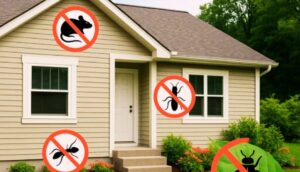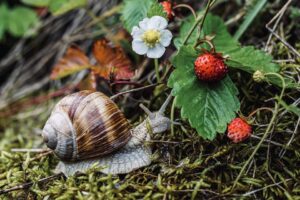Easy Ways To Keep Cats Out of Your Garden

Cats are not only playful by nature but also carious, and this curiosity can lead them into doing many mischievous things, for example, cats are great jumpers and climbers and will get onto tables, kitchen countertops, climb curtains, blinds, drapes, leap onto furniture or even attempting to and use their paws to scratch furniture. Cats will walk in front of you cutting cross and cross and even attack your feet. They will also rub up against your feet, chase moving objects, and even light in an effort to catch them.
This weird or strange behavior that a cat displays can be very entertaining, but as much as cats are curious indoors they will display this behavior outdoors as well venturing wherever their minds lead them. Even our garden cats will use as a nature trail where they can let their curiosity run wild as they explore. But this curiosity can lead to many dangers because certain plant species if consumed or eaten by cats can lead to poisoning and even in some cases death. It is good therefore to restrict your cat from your garden area for their safety, we will be taking a look at 7 easy ways to keep cats out of your garden including stray cats.
Can Cats Damage Your Garden
Cats can become destructive because of their curiosity they can dig up seed beds and expose seeds to the elements where they will not germanate, they can damage or destroy your prized plants, and they will attack birds that visit your garden even killing frogs and lizards that are a part of our ecosystem. And while it is true that cats can contribute to rodent control caution should be taken to ensure not only the safety of our garden plants but our cats as well.
8 Proven Methods to Dog Proof Your Garden
1. Install a Motion Sprinkler System
We all know that cats hate water, have you ever seen a cat come in contact with water and how they run as if water is a serious threat to them, installing motion detectors in your garden will give your cat a wet surprise that will send them running in the opposite direction.
2. Use Cat Repellents
Many types of cat repellents are sold that will help to keep cats out of your garden for example the Ultrasonic Animal Repellent device. This device will emit a sound that cats can hear and will cause them to stay clear of your garden. Before purchasing and using the device read the manufacturer’s directions.
3. Citrus Peel
Citrus peels produce an odor that cats hate, it is recommended to place citrus peels in your garden for example around your flower bed and raised bed to keep cats away. For example, grapefruit, orange, and lemon peels are great cat repellents.
4. Cat Proof Fence
Installing a cat-proofing fence is a great way to keep cats out of your garden, the slanted top of the fence should be faced outward instead of in. This will prevent your cat from getting over the fence.
5. Use Certain scents to Keep cats Out of Your Garden
Many garden plants give off an odor that cats hate, the installation of these plants in your garden can help to deter cats. Some of these plants include pennyroyal, lemon thyme, marigolds, rue, Coleus canina, lavender, rosemary, oregano, geraniums, garlic, mint or peppermint, common rue, scaredy cat plant, the curry herb plant, etc…
6. Create a Cat-friendly Zone
Create an area outdoors that your cat can not resist, the area can include a litter box and other cat toys that will keep them so occupied that all they want is to remain in that area.
7. A Natural Repellent
An all-natural way to keep cats out of your garden is to mix ground black pepper and warm water in a 32 oz spray, now shake the bottle well to mix thoroughly, next spray this solution around your garden. Cats hate the scent and will stay away. However, in the case of heavy rainfall reapplication is needed for the mixture to maintain effectiveness.
8. Hold Back on the Food
Don’t feed stray cats because if you do they will return or even decide to stay and take up residence in your garden.
Signs that Your Cat Got Plant Poisiong

If your cat shows these signs or symptoms seek medical help.
- Frequent urination.
- Coughing.
- Shock or collapse.
- Irregular heartbeat.
- Drooling.
- Loss of appetite.
- Swelling of skin or inflammation.
- Fever.
- Spanish Thyme.
- Twitching or seizure.
- Diarrhea and vomiting
- Excessive drinking.
- overall weakness.
- breathing difficulties.
Seek Medical Assistance
If your cat shows any of these signs take quick action and get your cat to the veterinarian.
Plants that are Poisioing to Cats
Here is a list of just a few plants that are poisonous to cats so take extreme caution if you have a cat and if you’re growing these plants keep your cat out of your garden area or install plants that are not poisonous to cats.

- Oleander.
- Chrysanthemum.
-
Rhododendron.
- Lily of the Valley.
- Lily.
- Rhododendrons.
- Dieffenbachia.
- Sago palm.
- Hyacinths
- Autumn Crocus.
- Tulips.
- Castor Bean.
- Daffodil.
-
Amaryllis.
-
Cyclamen.
- Autumn crocus.
Additional information
Cat litter can contaminate garden soil especially if you’re growing an edible garden, cats like to dig holes to relieve themselves or poop, and if your garden is an available spot then they will use your garden. A cat’s digging can also uproot seeds, and damage or kill seedlings.
10 Frequently Asked Questions (FAQs)
1. Why do cats like hanging out in gardens?
Cats love gardens because they’re full of soft soil to dig in, shady spots to nap, and interesting smells to explore. Unfortunately, that curiosity can lead to them using your flower beds as litter boxes or digging up your plants.
2. What’s a natural way to keep cats out of my garden?
Try sprinkling citrus peels like orange or lemon around your garden. Most cats can’t stand the smell! You can also plant cat-repelling herbs like lavender, rue, or pennyroyal—beautiful for your garden and annoying for neighborhood cats.
3. Do coffee grounds really work to deter cats?
Yes! Used coffee grounds can be spread around your garden beds. Cats dislike the smell, and as a bonus, the grounds add nutrients to your soil. Just be careful not to overdo it, especially if you have curious pets of your own.
4. Will motion-activated sprinklers scare cats away?
Absolutely. These gadgets are highly effective because they give an unexpected spritz when motion is detected. It doesn’t harm the cat—it just startles them enough to think twice about coming back.
5. Can I use vinegar as a cat repellent in the garden?
Yes, a mix of vinegar and water can work as a natural repellent. Just spray it around the edges of your garden or on garden features (not directly on your plants). The strong smell keeps cats at bay.
6. Is it okay to use mothballs to keep cats away?
No, mothballs are toxic to cats, other animals, and even humans. They’re not a safe option for outdoor use, especially if you have kids or pets. Stick to non-toxic, cat-safe methods.
7. What kind of fencing works best to keep cats out?
A short decorative fence might not cut it—cats are great jumpers. For better results, try installing chicken wire laid flat on top of the soil or a roll bar-style fence with a rounded top, which makes climbing tricky for cats.
8. How can I protect seedlings and new plants from cats?
Place wooden skewers, plastic forks, or small stakes in the soil around new plants. The pokey texture makes it uncomfortable for cats to dig or lay down, helping protect your garden beds as they grow.
9. Do commercial cat repellents really work?
Many do! Look for sprays made with essential oils or other natural ingredients that are safe for plants and animals. Some even come in granule form and can be sprinkled around your garden perimeter.
10. Is there a humane way to train a neighbor’s cat to stay out of my garden?
Yes—use consistent deterrents like motion sprinklers, scent-based repellents, or cat-safe barriers. Most cats will learn to avoid your garden after a few unpleasant (but harmless) experiences. You can also have a friendly chat with your neighbor—they may be willing to help keep their kitty indoors or away from your yard.
Conclusion
Having a cat as a pet can be exciting because cats are cute, cuddly, and affectionate doing funny tricks that will have you laughing, it may take a little effort on your part to keep your cat out of your garden for their safety and the safety of your garden plants. If you allow your cats to run freely to take care of any pests or rodent issues that you have then ensure that the plants in your garden are not toxic or if stray cats visit your garden now and again then the steps that were provided will create a cat-free zone.










This blog offers a comprehensive guide to keeping cats out of the garden, highlighting not only the potential harm cats can cause to plants and wildlife but also the dangers certain plants pose to cats. The variety of solutions presented, from motion-activated sprinklers to natural repellents like citrus peels and specific scents, provide practical and humane methods to protect both gardens and cats. The additional focus on creating a cat-friendly zone and awareness of toxic plants adds valuable depth, making it an informative resource for cat owners and gardeners alike.
Thank you so much for your kind words, going the safe is always the best way. I am glad to help.